Miscellaneous
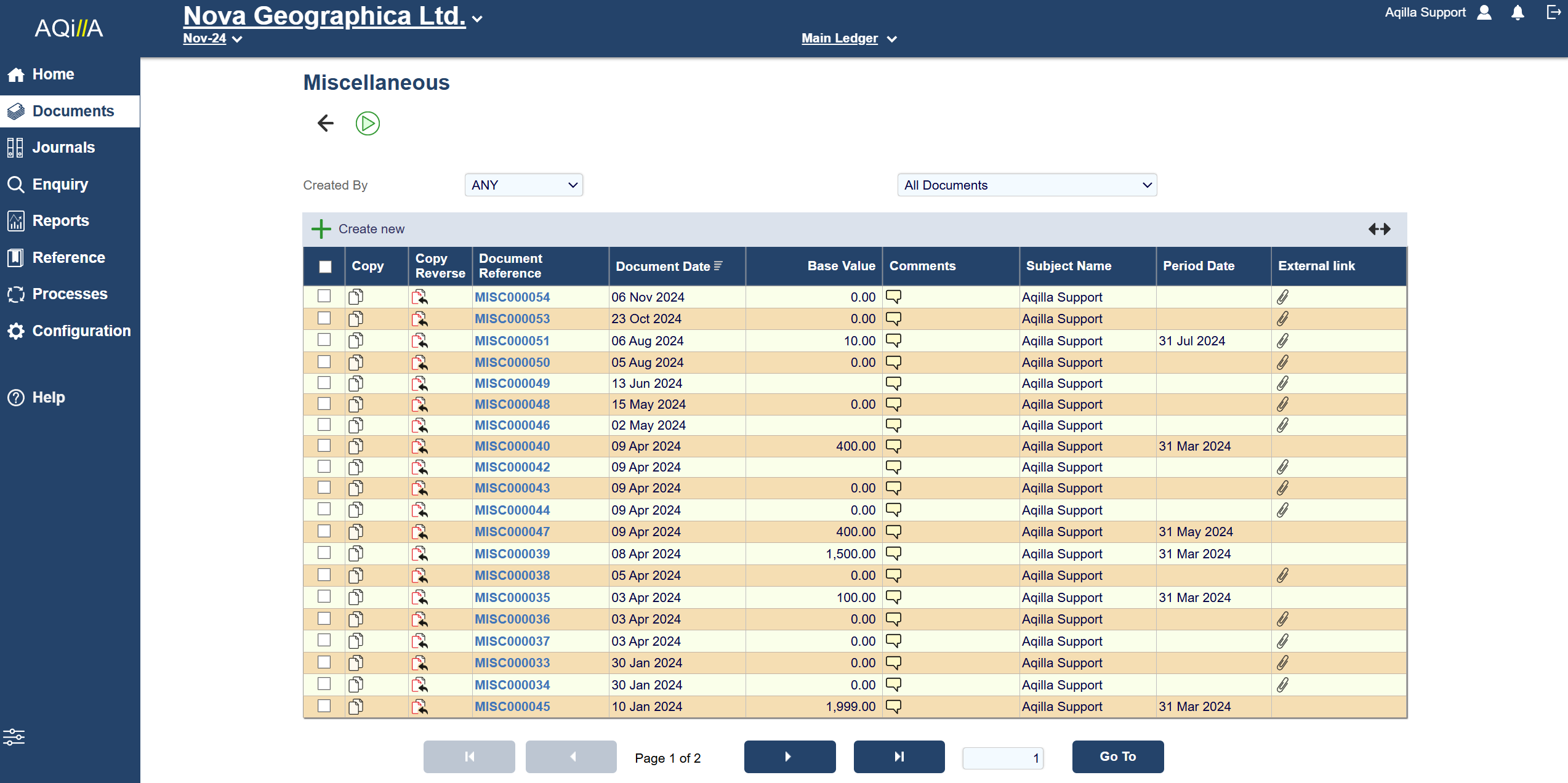
This document is designed to reflect the structure of a typical journal entry and simply consists of a number of credit and debit lines. If any financial situation cannot be recorded through one of the fixed document types, data can be captured through the Miscellaneous Document Type.
Miscellaneous - Details
Lines entered into the Miscellaneous document must always balance i.e. the total credits must equal total debits. If a Currency Code is specified in the original document, the currency Rate and Currency value are enabled and the currency value debits and credits must also always balance.
Like with any documents in Aqilla, Miscellaneous documents can be copied to simplify repeated document entries.
In addition, for all Miscellaneous documents, the option Copy Reverse enables copying an existing Miscellaneous document and automatically reversing the Credit/Debit markers on each line.
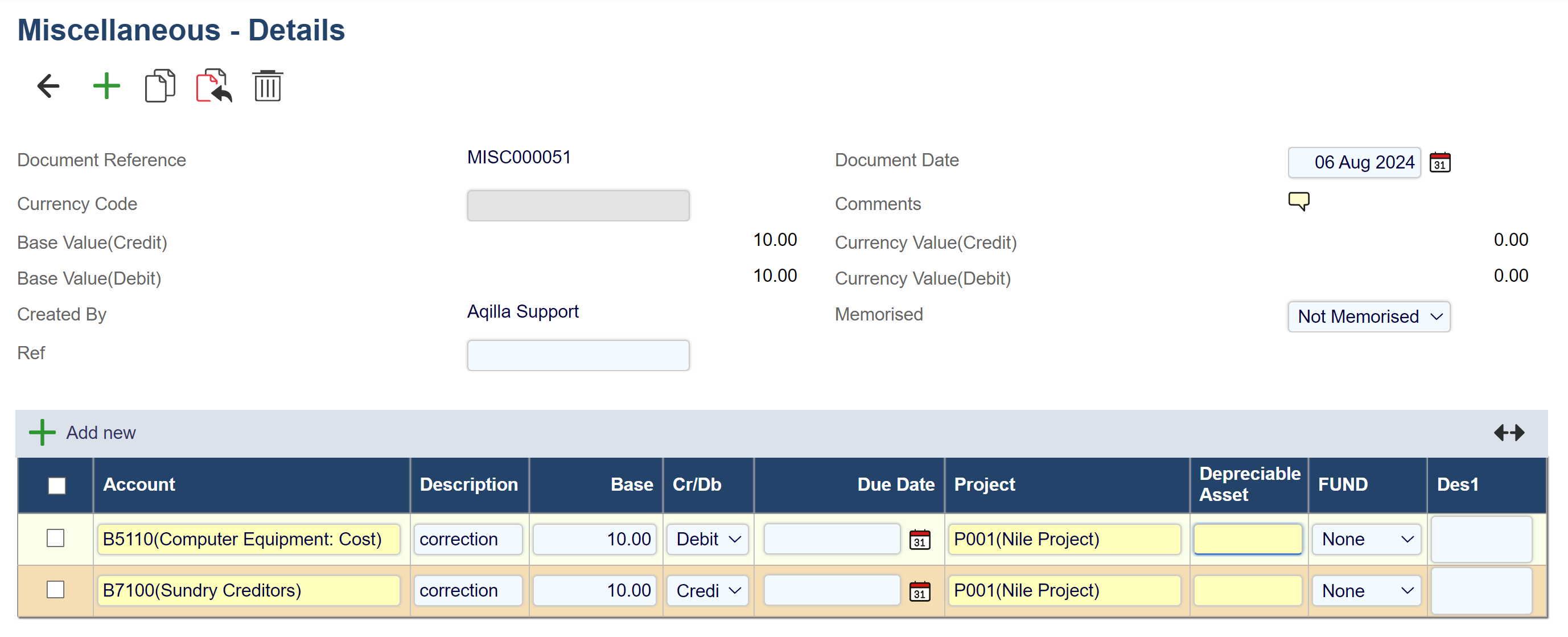
Document Fields
Each field on this document's header is described below. Mandatory entry fields are highlighted thus.
Field Name | Description |
|---|---|
Document Date | The document date defaults to the current date but this can be amended by the user. |
Document Reference | The document reference is automatically assigned by Aqilla. |
Currency Code | If not entered defaults to base currency. See Multi-Currency. |
Currency Rate | The default rate for the currency/period combination but this can be amended by the user. See Multi-Currency. |
Entered By | The name of the user who entered this document is automatically assigned by Aqilla. |
Memorised | See Documents. |
The document columns have two important features.
The Copy column will take an exact copy of the document.
The Copy Reverse will reverse the values of the Misc document. This is useful if you have made a mistake with a Misc Document.
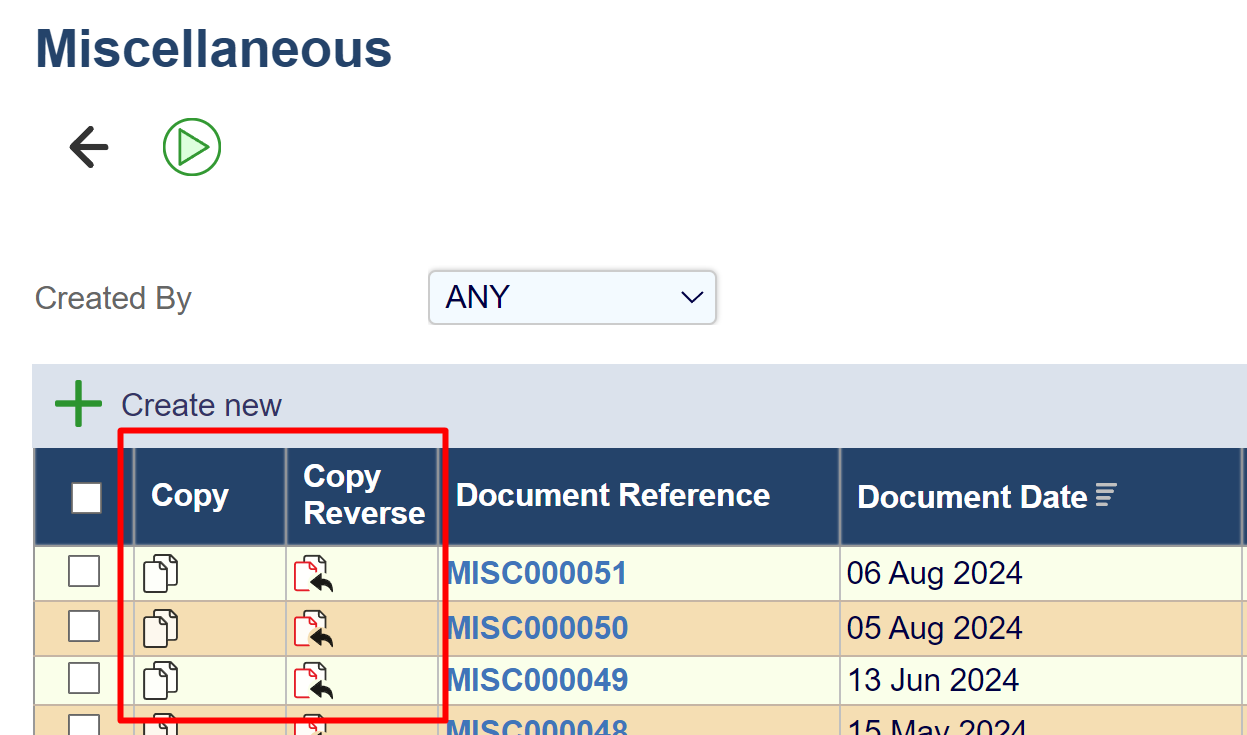
Fixed Asset on Miscellaneous Documents
Fixed Assets needs a cost value in order to start the depreciation calculation.
Important: Please note Fixed Assets must be switched on to access this feature (see the Fixed Asset Register Guide). You need to already have a fixed asset created in the fixed asset registry before you to assign a cost to asset using this method.
How to Add an Existing Asset to the Fixed Asset Register
Create the Fixed Asset in the Fixed Assets Register (Please see Fixed Asset )
Ensure the Accounts used on the the register match the accounts with Fixed Asset balances
Use a Miscellaneous Journal to remove the asset cost i.e. credit the asset cost value
Re-enter the asset cost, this time link it to the relevant Depreciable Asset
Cancel the depreciation to date from the relevant account (if you previously entered the NBV, create a new account for depreciation matching the asset account code)
Re-enter the depreciation to date, this time link it to the relevant Depreciable Asset
Important: Please check the period you’re posting to, this will determine the last depreciation period.

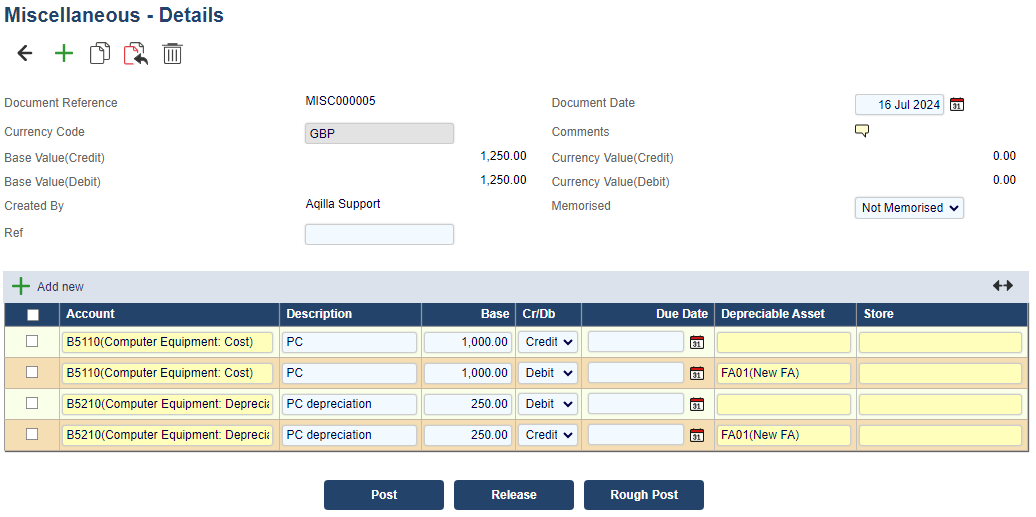
This may also be achieved using the Excel Add-In, if the Depreciable Asset label does not appear, you may need to contact Support or your Consultant to configure this for you.
Miscellaneous Multi-Period
This document is designed to allow you to create a document that will post to multiple periods within the same journal and, just like the standard miscellaneous document in Aqilla; it consists of credit and debit lines.
When creating the document, you should specify against each line the period you are posting to, and you do this by entering the Period Date (This can be chosen using the Calendar icon).
The same logic as for a standard miscellaneous document applies, where the lines must balance to zero. In this case, the system will check that each period balances to zero.
The earliest period you have chosen to post to should be set as the ‘Current Period'. This is to prevent posting to a closed period. Future periods must be defined in Periods under the Configuration tab, but they do not have to be set as Entry Enabled.
Note: This document is supported by the Excel Add-In.
IMPORTANT:
The Miscellaneous Journal requires debit and credit lines to balance for each period posted date. For example, a debit line of 500.00 and a credit line of 500.00 must both be assigned to the same period posted date, such as 30 June 2025. (As shown in the screenshot on the right).
You cannot have debit and credit entries that balance overall but use different period posted dates. Even if the document balances, you will encounter the error: “Cannot post the journal as the lines do not balance.”

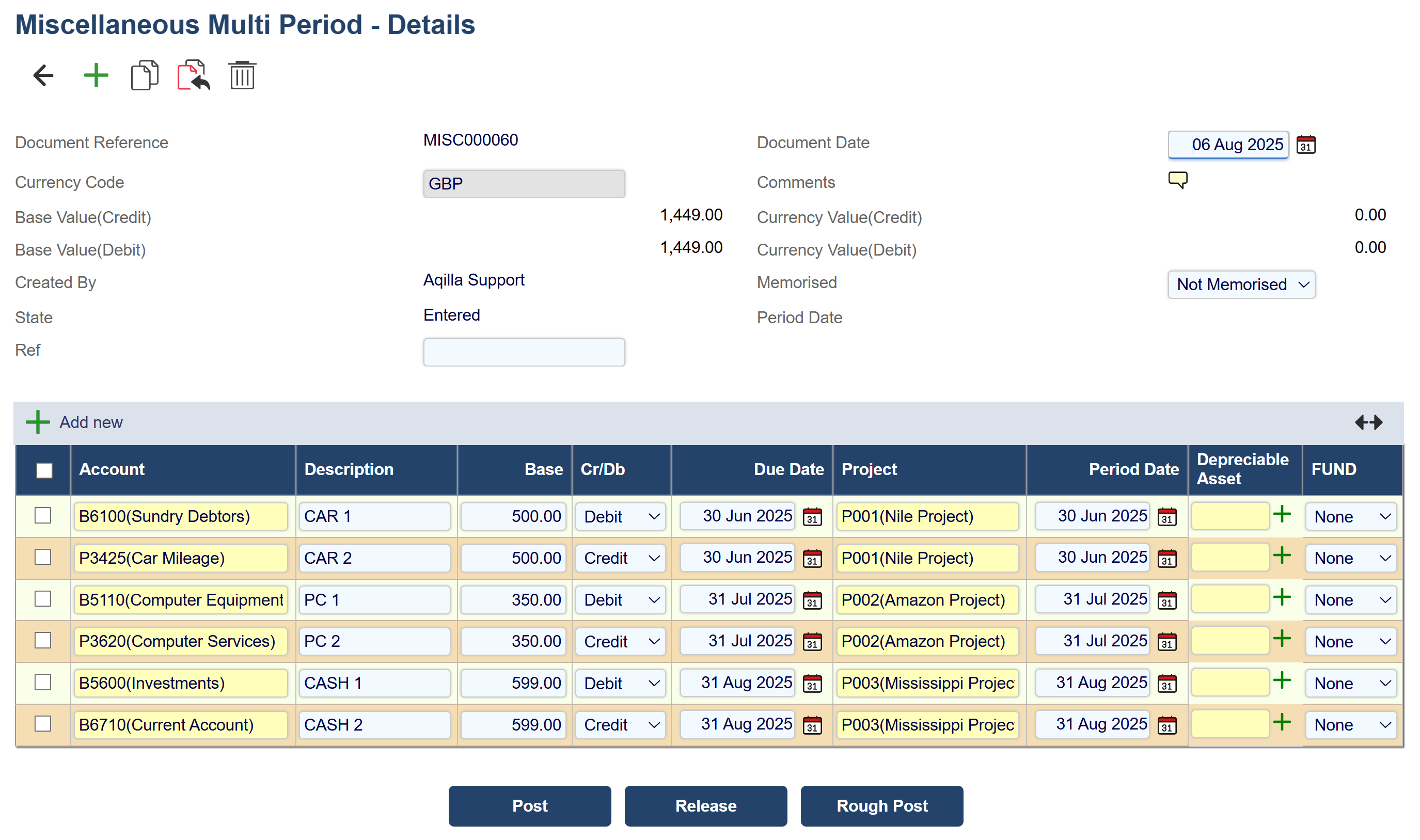
Multi Currency Miscellaneaous
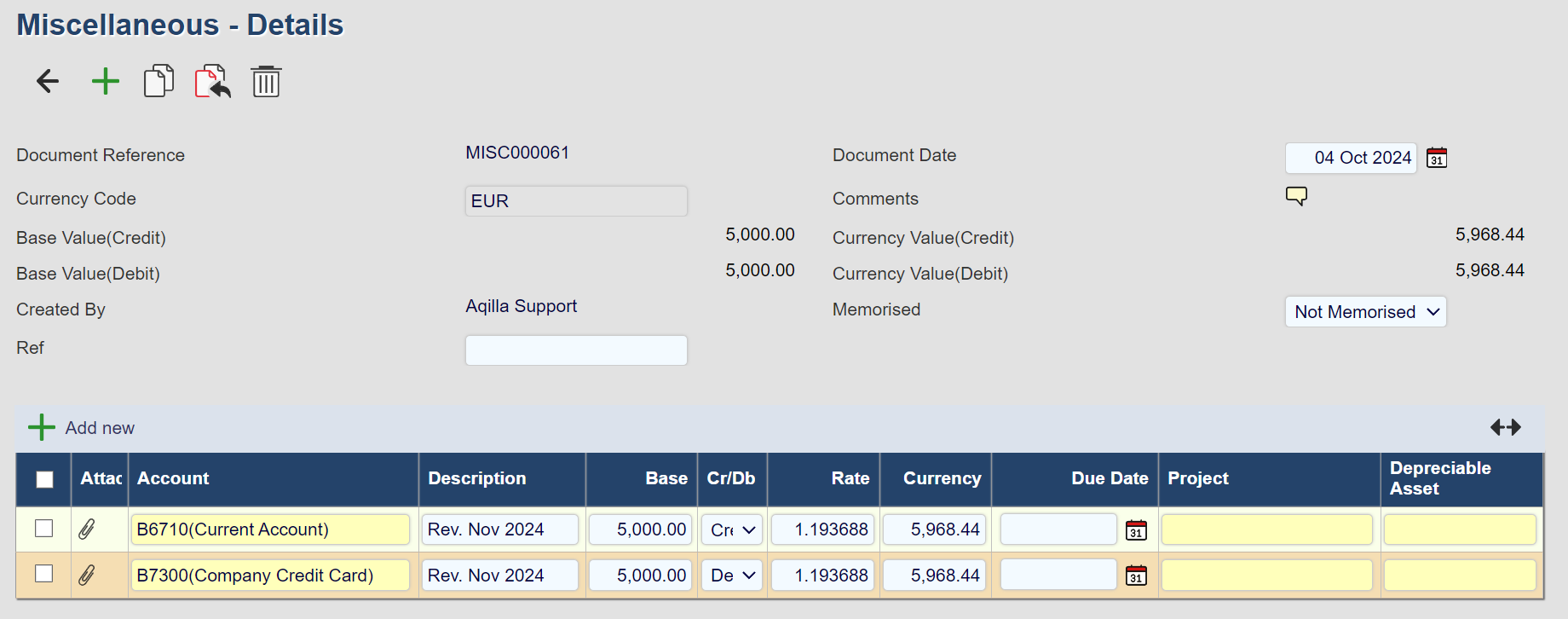
Multi currency for Miscellaneaous documents is selected on the header, but the currency rate is on the document line, not on the document header as other multi currency documents. See > Purchase Invoices
Only one currency is supported per Miscellaneaous document.
If Automated Currency Feed is used, the Currency rate is based off the document date.
